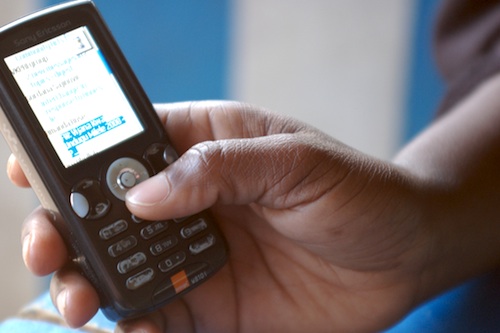Most South Africans cannot live without their cellphones, with many worried they might miss something if they turn them off, a survey has found.
The highest dependency was among people aged from 25 to 34, at 91%, followed by those aged 16 to 24, and then the over 50s, said market research company Synovate.
“With the never-ceasing increase in functionality of cellphones, phones have gone far beyond calling, texting and taking photographs,” said Synovate client services director Andries Lombaard in a statement.
“They serve communication and information needs and definitely appeal to the need for expression and individuality amongst the younger generations.”
Synovate interviewed South Africans aged 16 and older, in LSM4 and upwards, face-to-face in Johannesburg, Pretoria, Durban and Cape Town.
Researchers found most people never left home without their cellphones, even keeping them next to their beds, or not far away while they slept.
“Marketers have seen the advantage of the availability offered by this device and there has been an exponential increase in mobile websites, push advertising and MMS campaigns,” said Lombaard.
“With mobile, you also have the opportunity to be more interactive and, if you have sufficient information on your customer database, to customise content accordingly, making it a far more personal and relevant message for the receiver.”
Of the people interviewed, 82% owned one phone and 16% two. Ownership of two phones was more popular among Indians and whites. Only 2% reported having more than two cellphones.
Just over half of the people interviewed — particularly the youth –felt it would be more difficult to replace their cellphones than their wallets. “Cellphones these days carry much more information and media than they used to,” said Lombaard. “Firstly, you have all your contact information, birthdays, addresses and so on. And secondly they hold photographs and music that would be a big pity to lose. Wallets hold less personal, or sentimental, significance.”
Smartphones were owned by one in five of the people interviewed, mainly men between 25 and 34, in Johannesburg and Durban. “Competition between the smartphone brands has become fierce,” Lombaard said.
The survey found that apart from using their phones for calls, most people used them as alarm clocks, cameras, to download music and play games.
“Almost a third send and receive e-mail, while 46% use their phone for internet browsing,” Synovate said, adding that they were also used for social networking, instant messaging, video viewing and, to a much lesser extent, watching television.
Television topped the wish-list for new functions, ahead of increased memory, faster Internet connections, a movie function and more music functions.
A few people wanted even smaller phones and some wanted interactive gaming.
The survey found that two-thirds of people interviewed had used their cellphones to SMS a difficult message or to say no to something, and that only slightly fewer had lied in texts about where they were or why they were running late.
A third had set up first dates using SMSs and text flirted with someone who was not their partner, while nearly half had flirted via SMS.
Almost a third had broken up with someone by SMS — more of them men than women.
On a new Telkom cellphone service, most people believed there was room for another service provider and that Telkom had the infrastructure and sales and distribution channels, but said its offering would have to be unique for them to change their provider.
Half of those interviewed indicated that they were likely to purchase a Telkom Sim in the future, Synovate found. “It is encouraging to see that South Africans are always open and receptive to new entrants,” said Lombaard. — Sapa
- Image credit: Whiteafrican
- Subscribe to our free daily newsletter
- Follow us on Twitter or on Facebook


